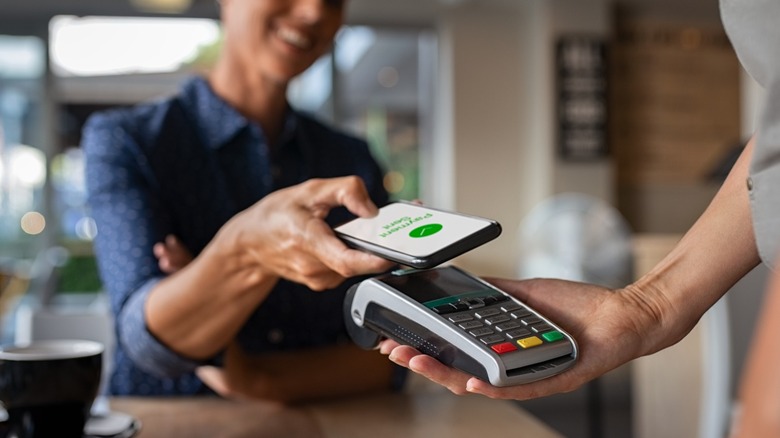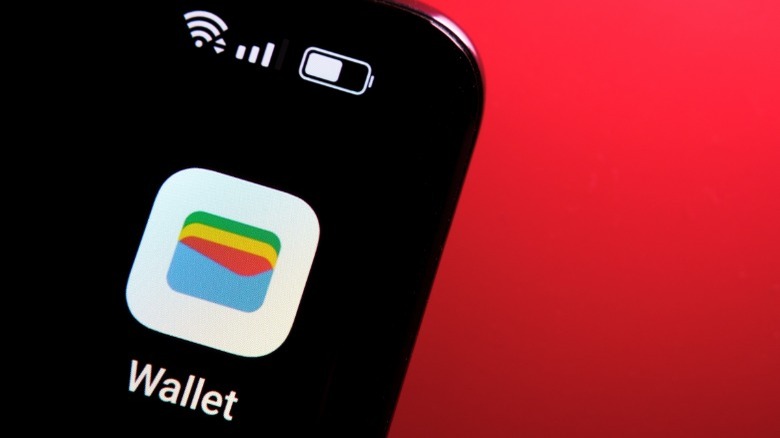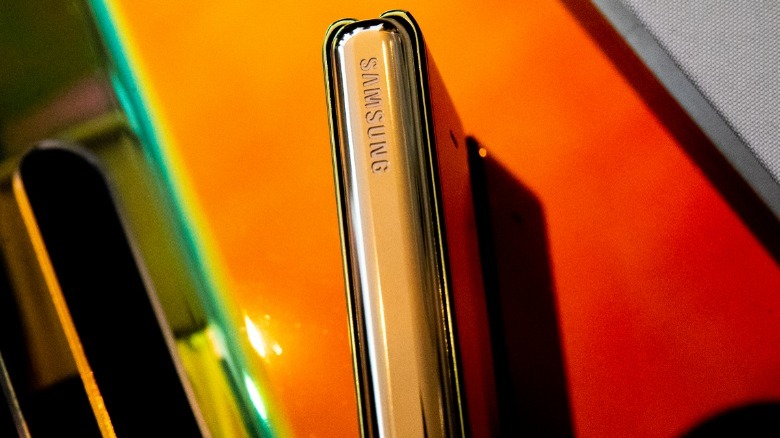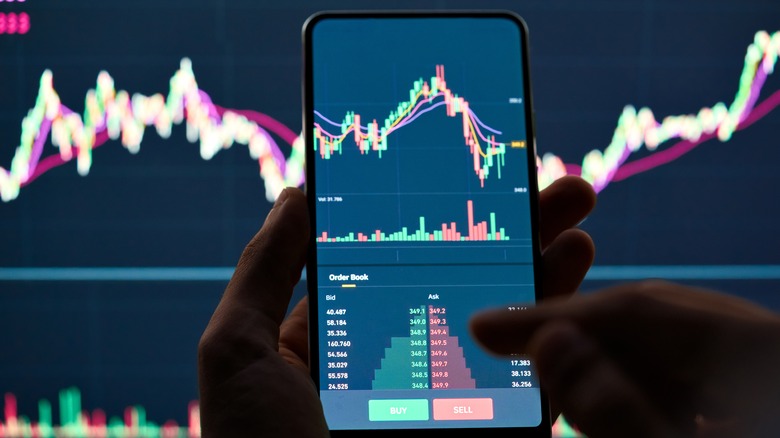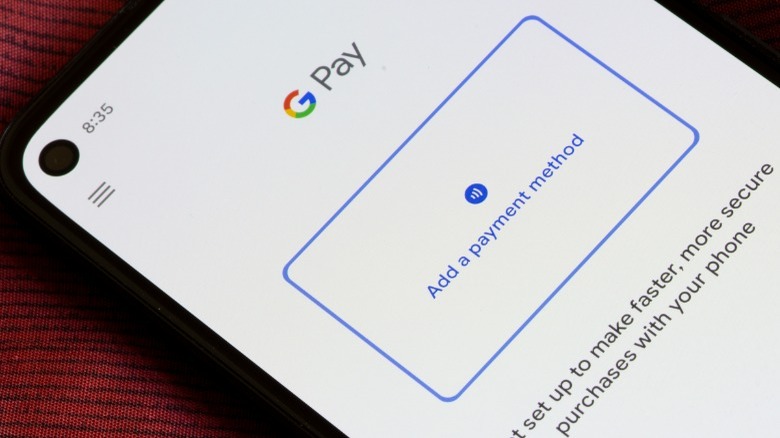Google Wallet Vs. Samsung Wallet: Which Should Galaxy Phone Users Choose?
There's something very sci-fi about having a single device in your pocket that has all the information you may need daily, handling everything from basic computing and communication to payments and public transport. Smartphones have evolved in leaps and bounds since the days of the first iPhone, and it's not just cameras, displays, and batteries that have gotten bigger and better. New sensors, technologies, and protocols have steadily revolutionized how we use our devices to interact with the world. What was once a portable telephone has become something many rely on for essential activities.
When NFC communication technology popped up, manufacturers and software developers quickly realized that they could use it to make mobile payments, and services like Google Pay, Samsung Pay, and Apple Pay popped up. These payment services have since evolved into fully-featured digital wallets that can do everything from storing identification documents, vaccination records, and concert tickets to making contactless payments using virtual credit cards.
What is Google Wallet?
These days, it feels like Google has its fingers in every pie, and the recently released Google Wallet furthers Google's drive to be a one-stop shop for software and services. Google Wallet, launched in July 2022, is technically just an expansion of what was known as Google Pay — itself a rebranding of Android Pay — in most markets. In the U.S. and Singapore, Google Pay continues alongside Google Wallet as a standalone payments app. Google Wallet now serves as a digital payment system and wallet in all other regions.
Google Wallet's key features cover all the basics you might expect from a digital wallet. There are obvious payment and card storage functions and some less prominent features, like travel and event tickets, digital identity documents, licenses, COVID-19 vaccination records, and loyalty cards. If you have a phone with an NFC chip, paying with Google Wallet is as simple as selecting the correct payment method and tapping a reader.
What is Samsung Wallet?
Samsung Wallet emerged in June 2022 as a combination of the existing Samsung Pay and Samsung Pass into one service, streamlining user interaction and reducing the number of apps you need on your phone while keeping the same functionality. While Wallet had a limited initial release to only six markets, it has slowly been rolling out in other regions and countries since its launch.
Samsung Wallet information is stored in Knox, Samsung's secure environment that holds encrypted information in non-volatile memory and has safeguards against access by malware and malicious attacks. Samsung Wallet is available exclusively on Samsung's Galaxy devices running Android 9 and above and going back to the Samsung Galaxy S8. Some lower-end devices don't support Samsung Wallet due to missing hardware. The most significant limiting factor for support is region since the app is currently only supported in 21 countries (via Nextpit). Similarly to Google Wallet, Samsung Wallet also supports loyalty cards, transit cards, vehicle keys, health records, and more.
Samsung Wallet delivers certain niche features
In terms of features, one benefit of Samsung Wallet over Google Wallet is the integration of a crypto wallet that supports the Coinbase and Gemini exchanges. It can store Bitcoin, Ethereum, and other digital currencies, and both digital wallets support ID documents and vaccine pass storage. Still, Google Wallet may have the upper hand in terms of transit cards thanks to Google Wallet's integration into Google Maps. While both Google and Samsung Wallets support vehicle digital car keys from partnered brands, Samsung Wallet also supports digital home keys for SmartThings door locks.
Another reason you may want to consider Google Wallet over Samsung Wallet is smartwatch integration. While Google Wallet contactless payments work with any WearOS 2.0 or higher smartwatch with NFC, Samsung Wallet is only supported with Samsung's Galaxy smartwatches, limiting your choices. Google Wallet and Samsung Wallet feature two-factor authentication and biometric access to keep things secure, but the way the services store information differs. Google Wallet stores your data securely in the cloud, so if you have Google Wallet on more than one device, your cards and information will automatically sync. In contrast, Samsung Wallet stores credit cards locally on a per-device basis, meaning moving devices or using the app on more than one device is more challenging.
Google's ecosystem mostly wins
Google Wallet's most significant advantage is the integration with your Google account, especially for Chrome users. Signing into your Google account in any Chrome web browser will allow Chrome to access and use your Wallet information to streamline checking out. Many websites have Google Pay integration, and even if they don't, Google Chrome can use any card information saved to your Google Wallet and auto-fill it at checkout to save you some time. This consolidation into one Google account also makes it easier to protect and recover your data in case of theft or lost devices. However, many Samsung Galaxy users will also have a Samsung account that can accomplish similar functionality.
While many merchants accept Samsung Wallet and Samsung Pay (just like Google Pay), those integrations are less common and only available on mobile. If you have cards saved to your Samsung Wallet, that information can be auto-filled on mobile sites if your selected password manager is Samsung Pass or Samsung Wallet. Your preferred ecosystem will be the most significant factor in choosing between Samsung or Google Wallet. The best reasons to go for Samsung Wallet are if you've already got a Samsung SmartThings door lock, you're trying to avoid having everything stored in the cloud, or you need support for cryptocurrency.
